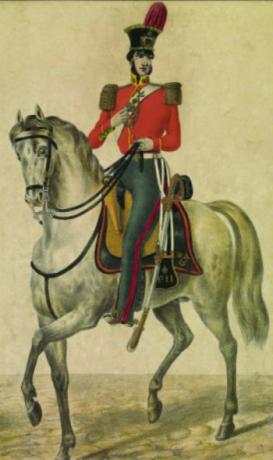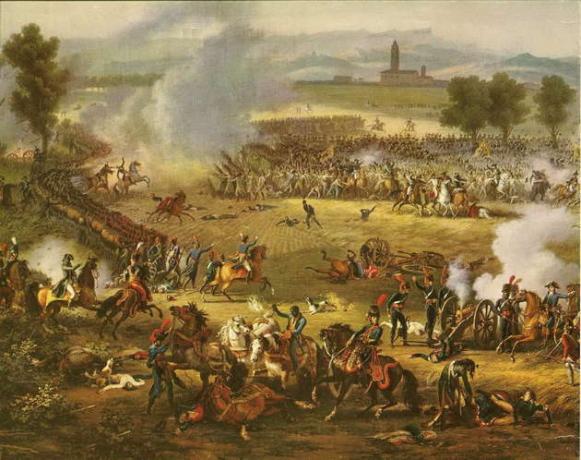THE National guard was created in August 1831 during the Regency Period.
The objective was to have an armed group to counterbalance the army's power and increase the autonomy of the provinces.
Origin

Uniforms of National Guard officers. Watercolor lithographs. Rio de Janeiro, Imperial Lithograph by Heaton and Rensburg, nd.
After the abdication of Dom Pedro I, various political groups such as conservatives, liberals and absolutists tried to make their ideas prevail within the government of the Trina Regency.
The army, in turn, also had demands for the new government. Fearful that the Portuguese wanted to reconquer Brazil, some officials asked:
- The suspension of Portuguese immigration to Brazil,
- the removal of Portuguese from public office,
- the enactment of a new constitution,
- and the creation of a new government.
Moving from words to action, the 26th Infantry Battalion of Rio de Janeiro and the city's Police Corps rebel.
The Minister of Justice, Diego Feijó, asks the battalions of Minas Gerais and São Paulo for help. In addition, it distributes weapons to its allies, who formed the Sacred Battalion, with about 3000 soldiers, commanded by then Captain Luís Alves de Lima e Silva (future Duque de Caxias).
Read more about the Governing Period.
Creation of the National Guard

Member of the Cavalry Corps of the National Guard. Watercolor lithographs. Rio de Janeiro, Imperial Lithograph by Heaton and Rensburg, nd.
So it was clear that the government could not entirely trust the army that had its own political ideas.
It was decided to create an armed force formed by the elite, the National Guard. Its members were all citizens with the right to vote and would thus obtain exemption from serving in the army.
However, they received no payment and were responsible for their own uniform. The government was tasked with providing weapons and instruction. The National Guard was subordinate to the Justice of the Peace, then to the Judge of Law, to the President of the Province, and finally to the Minister of Justice.
The highest rank that a civilian could attain was that of Colonel, and the title was reserved for the great landowners of each region. In this way, the National Guard will generate the phenomenon of "colonelism” that will mark Brazilian politics so much.
For the Army, the creation of the National Guard was seen as disastrous, as the number of troops was cut by a third in Rio de Janeiro and thus, the Armed Forces diminished in importance.
Despite the military revolts registered in Rio de Janeiro and Pernambuco, the fact is that the officers they were afraid to count on the support of the population in general and with that, generate a revolt among the slaves. For this reason, they were isolated in the barracks and their demands were not supported by ordinary citizens.
End of the National Guard
After the proclamation of the Republic, made mostly by the Brazilian Army, the National Guard lost its importance. After all, the Army was against this armed body since its inception.
It was absorbed by different army battalions and would be extinguished in the Republic, in 1922, by President Artur Bernardes.
See too: Duque de Caxias


